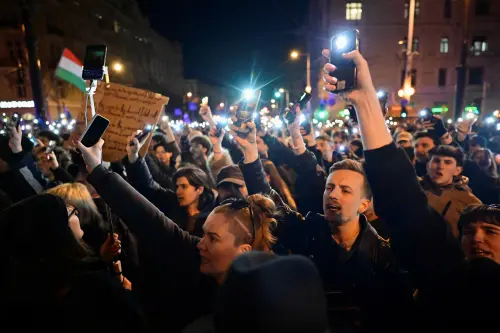Hungary's president has signed a law proposed by Prime Minister Viktor Orban's ruling party that prohibits LGBTQ+ communities from holding their annual Pride march, despite criticism from human rights organizations that this restricts freedom of assembly.
Protesters blocked a bridge in central Budapest on Tuesday evening after parliament passed the measure, which was expedited by Orban's right-wing Fidesz party on Monday.
President Tamas Sulyok, a former chief of the Constitutional Court and elected to his largely ceremonial position a year ago by the Fidesz parliamentary majority, signed the law. His office did not respond to inquiries regarding the law.
The legislation bans Pride events on the grounds that they could be harmful to children. It also permits police to use facial recognition technology to identify attendees and impose fines on participants.
Orban, facing a struggling economy and unprecedented challenges from a new opposition party in advance of the 2026 election, has consistently criticized the LGBTQ+ community.
His policies often conflict with the stance of the European Union. Hadja Lahbib, the EU commissioner for equality, stated on social media that "the right to gather peacefully is a fundamental right to be championed across the European Union."
Michael O'Flaherty, Council of Europe Commissioner for Human Rights, expressed significant concern regarding the new law and urged Sulyok to veto it.
Budapest's liberal mayor, Gergely Karacsony, also condemned the law, asserting that this year's Pride "could be bigger than ever." Organizers announced their intention to proceed with this year's march, scheduled for June 28, despite the ban.
"Budapest is the city of freedom; there will be Pride," Karacsony affirmed.
Orban, who has been in office since 2010, has also pledged to intensify efforts to restrict foreign funding of independent media and NGOs, following the example set by his ally in the U.S.
